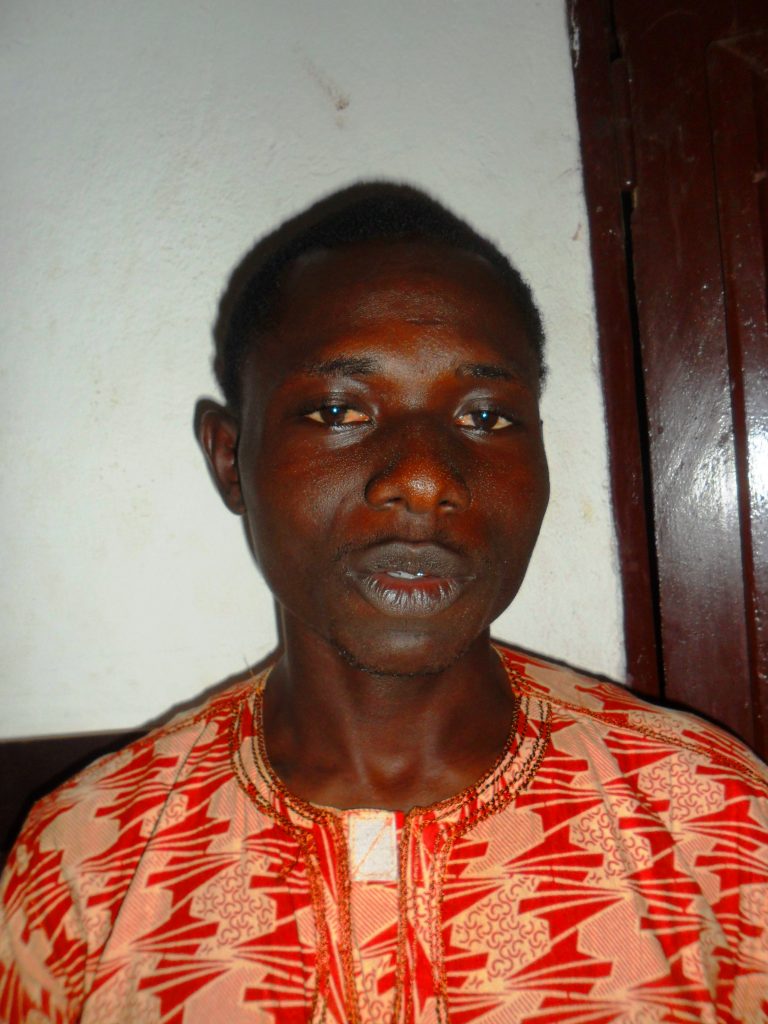 It was a twin-pack experience for the many who thronged the British Council hall for the maiden edition of the MFWA Journalism for Change Dialogue – the opportunity to hear the rich experiences of the renowned investigative journalist in fighting societal and governance ills through undercover reporting; and the satisfaction of curiosity as participants came face to face with the ‘mystery’ journalist.
It was a twin-pack experience for the many who thronged the British Council hall for the maiden edition of the MFWA Journalism for Change Dialogue – the opportunity to hear the rich experiences of the renowned investigative journalist in fighting societal and governance ills through undercover reporting; and the satisfaction of curiosity as participants came face to face with the ‘mystery’ journalist.
The event saw Ghana’s ace investigative journalist Anas Aremeyaw Anas, mesmerise his audience with a gripping narrative of his experiences amidst video presentations of excerpts of his famous works.
Chaired by Justice Emile Short, former Commissioner of the Commission on Human Rights and Administrative Justice CHRAJ), the event was attended by people from all walks of life – journalists academics, representatives from government ministries, security agencies, civil society organizations, foreign missions in Ghana, and anti-corruption institutions.
Narrating, how it all started, Anas Aremeyaw Anas grabbed his audience attention with the riveting words that captures the essence of his works – Name, Shame and Jail he recounted his first investigative piece as a student journalist in which he posed as a peanut snack (nkate boga) seller at the Accra end of the Accra-Tema Motor Way toll booth where he had noticed brisk hawking on-going despite a conspicuously cited “No Hawking” sign. Eventually, he managed to film police officers taking monies that the hawkers contributed daily to secure themselves from harassment. “The encouragement from my bosses at the Crusading Guide newspaper following this modest success spurred me on, and since then, I have not looked back, he said.”
With some video footage, Anas showed his astounding repertoire which included undercover investigations at the Osu Childrens’ Home, the Accra Psychiatric Hospital, the Tema Harbour, the DVLA, the Eurofoods Biscuit factory and a rebel base inside war-torn Cote d’Ivoire. “Now I do some work for the BBC and Aljazeera too; I have done some work in other Nigeria and Tanzania too” Anas noted.
On what has been his motivation and how he comes by his works, Anas underscored the significance of in-depth research, analytical skills, team work and collaboration with key state actors, where necessary. “Initially I asked myself “so when at all will change come; why shouldn’t I stop this and do other things? But my motivation was that this will benefit posterity; the worst thing is to assume that we can’t make a change and abandon the pursuit; it takes time. Getting the change is not about one person and it will not happen overnight. Some state institutions can even discourage you; but you have to persevere”, he said.
Quite intriguing was Anas’ commitment to the ethics of the journalism profession in carrying out his investigative assignments and the need for collaboration with key state actors contrary to the concept of subterfuge and independent journalism as espoused in journalism training. Anas however said “We just don’t go around invading people’s privacy; for us, It’s not a trial and error situation; we mean business and so we are focused on the change”. Answering critics who felt his collaboration with state institutions could compromise his independence, he acknowledged the pitfall but however insisted that “there is nothing wrong with collaboration for change; one only needs to be careful not to accept outside influence on editorial policy”.
The event was the first in a series of to be organized by the MFWA under its Journalism for Change (J4C) project. The project is aimed at promoting and inspiring high quality, impact-oriented investigative journalism as part of the efforts to promote good governance in Ghana.




